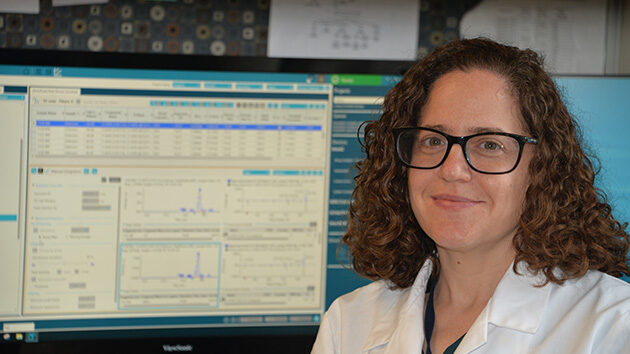Research: The Foundations of Advanced Heart Care

The latest therapies and leading-edge surgical techniques used by Albany Med Health System’s cardiologists and cardiothoracic surgeons were all made possible by previous clinical, translational, and basic science research.
Within the System, our scientists and clinicians are also advancing the understanding of heart diseases and related conditions.
Contributions to Diagnosis and Treatment
Studies led by System researchers are regularly published in peer-reviewed journals such as the Journal of the American College of Cardiology, Catheterization & Cardiovascular Interventions, and Journal of the American Heart Association, contributing to standards of care and best practices for conditions like atrial fibrillation and acute coronary syndrome.
System providers are also members of professional societies and organizations that routinely present their findings at national and international conferences, including the American Academy of Pediatrics National Conference, the American Heart Association, and the American College of Cardiology Scientific Sessions.
In addition, System researchers are regularly supported by major grants from the National Institutes of Health, American Heart Association, and other organizations and foundations, a testament to the importance of their work.
Studying Diseases at the Molecular Level
In her lab at Albany Medical College, Gabrielle Fredman, PhD, professor in the Department of Molecular and Cellular Physiology, focuses on the link between aging and atherosclerosis, and how chronic, non-resolving inflammation drives the progression of the disease.
Also known as hardening of the arteries, atherosclerosis is an inflammatory disease in which plaque build-up in the arteries causes blood vessels to narrow over time, which can lead to heart attack or stroke.
Dr. Fredman and her team recently found a new causal mechanism as to why the body can’t resolve inflammation during this disease. They also identified a potential therapeutic strategy to harness the body’s ability to help resolve the chronic inflammation seen in plaques.
“There are effective therapies to curtail risk factors for atherosclerosis,” said Dr. Fredman, “yet this disease remains a major human killer so there is a critical need for new ways to treat this devastating disease.”
Translating Research to the Clinic
Young-Hwa Goo, PhD, associate professor in the Department of Molecular and Cellular Physiology, also studies atherosclerosis, with a particular interest in translating her findings from the bench to the bedside.
In collaboration with her colleague Antoni Paul, PhD, associate professor, and Paul Kreienberg, MD, of the Division of Vascular Surgery, Dr. Goo identified genes involved in lipid metabolism and inflammation, two major driving forces in the development of atherosclerosis.
The team is currently studying “stress granules”— clumps of genetic materials that form when the body is under stress and that are known to contribute to metabolic diseases when stress is left unchecked— and how they’re involved in atherosclerosis.
Clinical Studies
While laboratory scientists seek to understand diseases at the molecular level, clinical studies extend basic science research to humans, evaluating the safety of potential new therapies and the effectiveness of existing therapies and procedures.
Cardiologist Radmila Lyubarova, MD, one of many System providers who performs clinical research, has a particular interest in studying gender differences in cardiovascular disease, women’s cardiovascular health, and lipid management.
In a recent study, she and her team found that among patients referred for coronary angiography, certain lipoprotein subfractions had significant correlation—either direct or inverse—with the presence and severity of coronary artery disease.
Dr. Lyubarova also noted that cardiovascular diseases are the leading cause of mortality in both men and women, but there are significant differences. “For example, despite similar guidelines for treatment, studies have shown that women have worse control of dyslipidemia than their male counterparts, which can increase the chance of clogged arteries,” she said.
Thanks to the work of researchers like Drs. Fredman, Goo, and Lyubarova, we may someday know why this difference exists—and how to treat it.